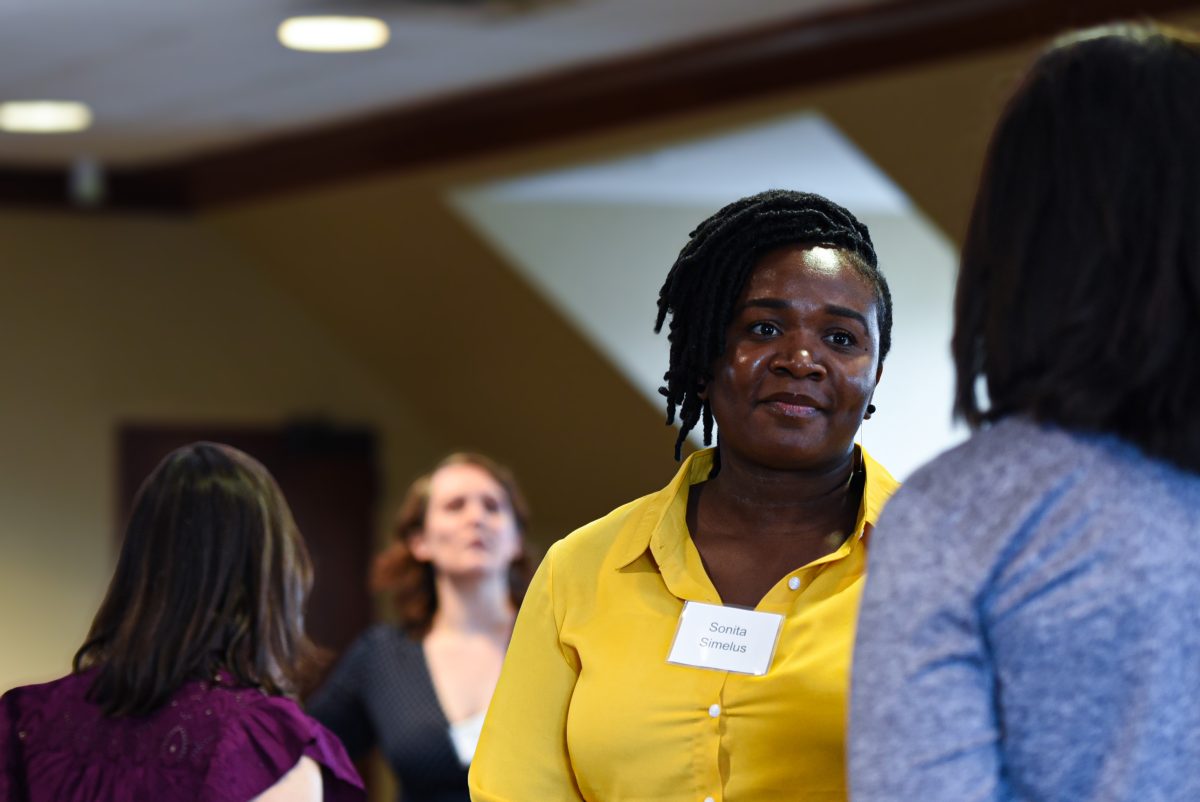
Sonita Simelus, assistant teaching professor in the Department of Public Health within the College of Health Sciences, developed a passion for helping others at age 8, when she was growing up in Haiti and witnessed her father distributing goods and food to vulnerable communities after difficult events such as natural disasters.
“In my young mind, I never understood why a little girl who looks just like me doesn’t have shoes on, and looked so dirty – it always bothered me,” Simelus said. “So, I wanted to be a doctor. I thought that would be helpful in some way.”
Once Simelus graduated from the Universidad Tecnológica de Santiago, she decided to work in the rural areas of the Dominican Republic, to help people learn how to take charge of their health, eat better and be healthier overall.
“I wanted to be in a place where I could improve health by empowering people because everyone deserves the opportunity to learn how to take better care of themselves,” she said.
Simelus developed a passion for public health, which led to a shift in her career trajectory to public health and to teaching.
“I applied to the University of Missouri for my master’s in public health,” she said. “I graduated in 2016, and the public health department always felt like home.”
Finding support
Now that Simelus teaches full time in the Department of Public Health, the faculty support group Connection became a good option for her to further develop her skills.
“Connection was always something I heard so many good things about,” Simelus said. “I’ve always wanted to try it for myself, especially as I stepped into teaching full time, there are a lot of responsibilities and growth that needs to take place.”
When she first attended Connection meetings, Simelus found that there were people from a variety of disciplines with more experience than her. Instantly, she wanted to be part of this network, to participate in the exchange of knowledge.
“The group encourages you in your own walk to strive for excellence and achieve things in your teaching. It creates a community of learners with similarities and differences which allows you to grow and become your best.”
Community has its benefits
After discovering firsthand the importance of Connection, Simelus realized there was a lot she could learn as an early career faculty member.
“You never realize how much you don’t know until you go to a meeting like Connection,” Simelus said. “It’s a unique learning opportunity for early career professionals to discover what they need in order to seek tenure or promotion, or whether they need to kind of know where to go for something, like resources.”
Simelus values Maurice Gipson, vice chancellor for Inclusion, Diversity and Equity, and Candace Kuby, associate provost for faculty success, particularly their ability to make faculty feel valued and included.
“If you are considering participating in Connection or any other groups on campus that foster diversity, inclusion and equity, provide you with resources and connect you with other faculty – just do it.”